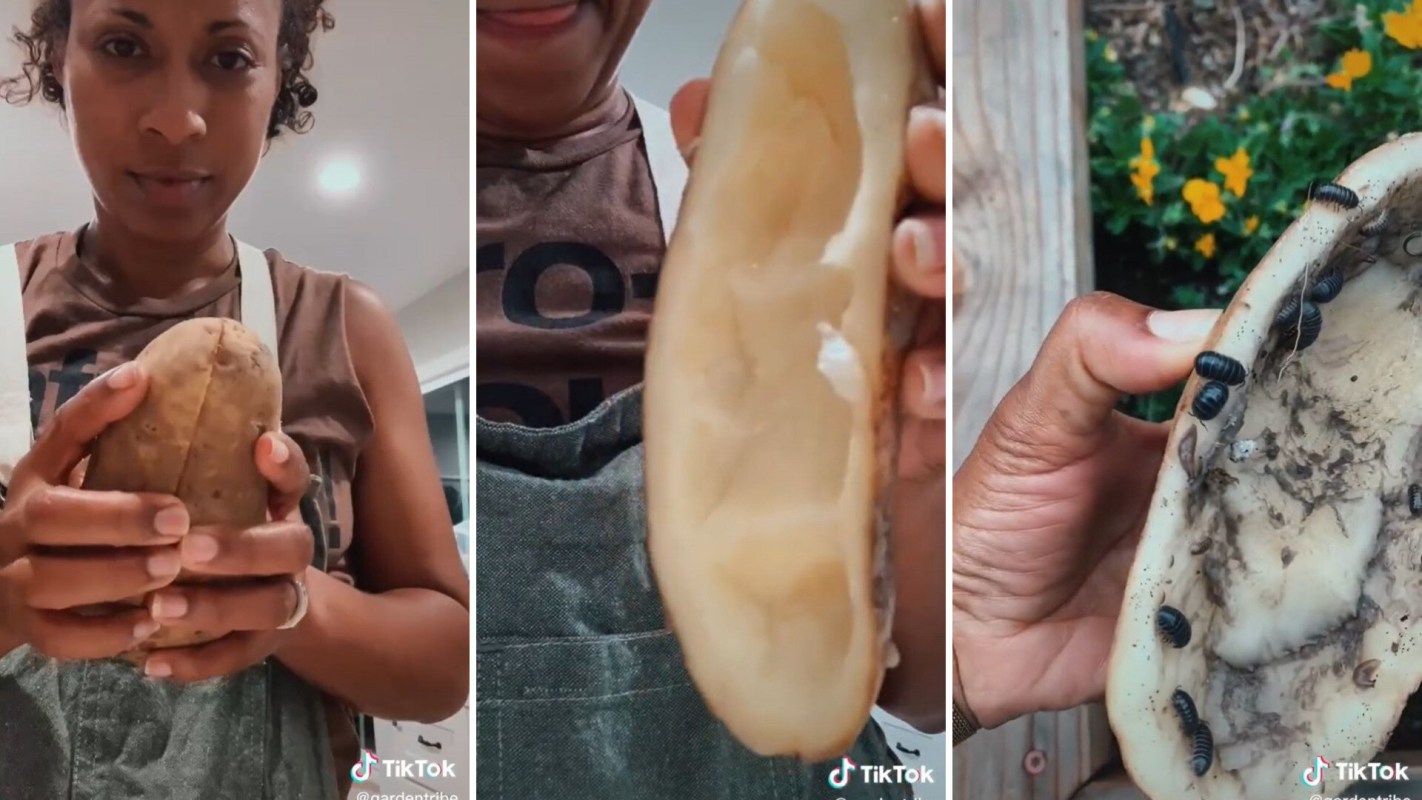As you prep for your next planting season, and one TikToker has you covered when it comes to pests. Roly-poly bugs, while adorable, can be considered pests in a garden as they damage plants by nibbling on their roots, stems, and leaves.
Mignonette Bailey (@mignonettespeaks) is a content creator offering garden tips and recipes. She shared an incredible hack to keep roly-poly bugs out of your garden without using toxic chemicals or pesticides.
@mignonettespeaks Roly polys are evil. Don't @ me. 🐛 #gardentips #gardening101 #organicgardening #tiktokpartner #learnontiktok #growfood #foryou ♬ Ridin' - Chamillionaire
The scoop
In her viral video, Bailey explains why it's so important to check your garden after dark. Roly-polies, also known as pill bugs, feed on decaying organic matter and are especially active at night. Bailey states that a simple night walk-through can answer a gardener's questions about what's been chomping on their plants after hours.
By carving out potatoes and leaving them in her garden overnight, Bailey creates a nontoxic way to trap pill bugs without killing them. She's then able to move the critters out of her garden, keeping them alive and saving her plants at the same time.
How it's helping
While it can be tempting to grab a bottle of pesticide at your local hardware store to eliminate unwanted insects, the side effects may not be worth it.
Pesticides are chemicals designed to kill or control pests, but they can also have negative impacts on the environment and human health. Long-term exposure to certain pesticides has been linked to a range of health problems, such as cancer, reproductive harm, and endocrine disruption. Pesticides can also harm beneficial insects, birds, and other wildlife, as well as contaminate soil and water.
When possible, it's best to use nontoxic, organic solutions. Potatoes are completely safe for humans, and they provide just as effective an outcome as a chemical pesticide.
Plus, using household ingredients may save you some money. A pound of potatoes costs an average of just $1 to $3, while a small bottle of pesticide can cost anywhere from $5 to $20.
What everyone's saying
Viewers could not have been more thrilled with this hack, with one writing, "I love how nontoxic it is, and a way not to kill them either."
Another offers a tip of her own, explaining, "Lemon balm, cinnamon, and peppermint are also natural deterrents!"
TCD Picks » Quince Spotlight
💡These best-sellers from Quince deliver affordable, sustainable luxury for all
"Oh my God, you just changed my life," another added.
Join our free newsletter for easy tips to save more, waste less, and help yourself while helping the planet.













